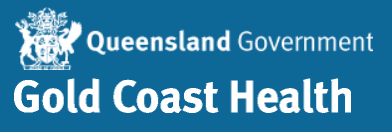First Nations Health Equity SEQ Strategy
Overview
Health Equity Strategy – Gold Coast Health
What is Health Equity?
Health equity means that everyone has a fair and just opportunity to be as healthy as possible. Health inequities exist because of inequities in the conditions of daily life (such as housing, education, and employment). There is currently a gap in the health of Aboriginal and Torres Strait Islander people and other Australians. Health equity means closing this gap.
What are First Nations Health Equity Strategies
The Queensland Government has changed the law to prioritise health equity for Aboriginal and Torres Strait Islander people. From 2022, each of Queensland’s Hospital and Health Services will have a Health Equity Strategy. This will show how the Health Service will work with First Nations peoples and organisations to close the health gap, answer to the Communities that we serve and build better health services for our Mob.
How will this be tailored to local Community?
The SEQ strategy will guide the development of a local action plan, which will be developed in early 2022 after the SEQ Strategy is finalised.
The Action Plan will take the high-level strategies in the regional plan and consider what they look like for Traditional Custodians and all Aboriginal and Torres Strait Islander people living in the Gold Coast region. Extensive consultation will be undertaken for this to make sure it meets local needs and to get local ideas about health equity.
Get involved!
Take the short survey and join a yarning session.
South East Queensland (SEQ) Aboriginal and Torres Strait Islander Community Engagement Strategy
The SEQ Aboriginal Community Controlled Health Organisations (CCHSs) and Hospital and Health Services (HHSs) have agreed to an ongoing process of consultation with the Aboriginal and Torres Strait Islander people of SEQ about their experiences of the health system, their health needs, and priorities.
This is an ongoing yarn over the next ten years as we work together to close the health gap in SEQ and build better health services for our Community.
It is through these yarns that we understand what the Community wants from its health system and ways that the health system can be improved to work better for Aboriginal and Torres Strait Islander people and families.
SEQ Health Equity Strategy
The Institute of Urban Indigenous Health (IUIH) has teamed up with Hospital and Health Services in South East Queensland to develop a regional strategy. The SEQ First Nations Health Equity Strategy will guide where health services need to focus their efforts to achieve health equity for First Nations peoples by 2031.
We would like to ask you about the Strategy and whether it addresses the areas that are most important to you and your family.
But first, we need your feedback on the SEQ Strategy…
So far, the Strategy has been developed with members from local HHSs and the IUIH Network of CCHSs.
We will be yarning with, and listening to, Mob over the next 10 weeks about this Strategy so now is a chance to have your say and for your perspectives to be heard and taken on board. It is through these yarns that we understand what the Community wants from its health system and the ways the system can be improved to work better for Aboriginal and Torres Strait Islander people.
This survey hopes to get wider feedback from Aboriginal and Torres Strait Islander people on the strategies that have been chosen.
What happens next
Results from this survey will be fed back to IUIH and will inform the SEQ First Nations Health Equity Strategy.
We will also be having yarning sessions to get more detailed input on the Strategy, so if you are Aboriginal and/or Torres Strait Islander want to be involved please click here to request a consultation.
Consultations will be delivered by Lynda Maybanks who is a communications and engagement consultant with extensive experience working with First Nations communities and the health sector. Lynda is a descendant of both Yugara and Yugembeh (Gateebil and Yerongpan within Yugara) and (Mununjali and Wangeriburra within Yugembeh).
Audiences
- Anyone from any background
Interests
- Internal Consultation
- External consultation

Share
Share on Twitter Share on Facebook